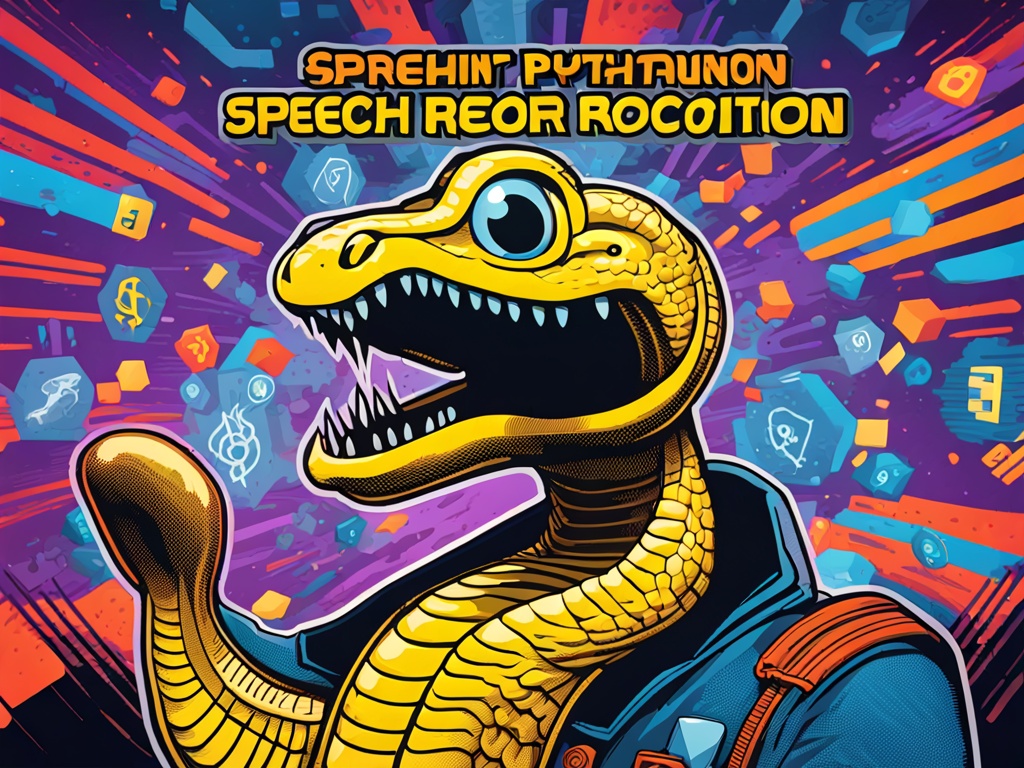Exploring Python’s Speech Recognition Advancements 😃
This year, the realm of Python speech recognition unfolds a myriad of innovative solutions tailored to various requirements and user preferences. As a developer, you’re confronted with the choice between open-source libraries and cloud-based services, each presenting distinct benefits and potential drawbacks. Understanding these options can significantly enhance your projects.
Grasping the Concept of Speech Recognition
Speech recognition technology empowers machines to transform spoken words into written text. This process involves analyzing sound waves and recognizing patterns in them. From virtual assistants to transcription services and voice-activated devices, this technology plays a crucial role in improving user engagement with digital mediums.
Comparing Open-Source and Cloud Solutions 🔍
When delving into Python speech recognition, you will typically encounter two main types: open-source libraries and cloud-based solutions. On one hand, open-source libraries like Whisper from OpenAI, SpeechRecognition, wav2letter, and DeepSpeech allow you to embed speech recognition features directly into your applications. They provide complete control over the source code, which means customization is possible, but you will need substantial computational resources to run them effectively.
On the other hand, cloud-based services, such as AssemblyAI’s Speech-to-Text API, are designed for ease of use and higher precision. They process data on external servers, eliminating the hassle of managing local computing infrastructure. However, it’s worth noting that these cloud services often incur ongoing expenses and offer limited oversight of the algorithms in use.
Factors to Consider 🎯
In deciding which speech recognition solution to utilize, you should assess several factors, including:
- Accuracy – How reliable is the speech-to-text conversion?
- Cost – What are the financial implications of your choice?
- Implementation Convenience – How straightforward is it to integrate?
- Control – How much oversight do you have over the system?
Generally, cloud solutions excel in accuracy and user-friendliness, while open-source libraries shine in customization and transparency.
Spotlighting Open-Source Python Libraries 🌟
Whisper, created by OpenAI, supports multilingual processing and transcription. It’s particularly useful for offline projects, yet it demands considerable computational power. The SpeechRecognition library acts as a wrapper for diverse technologies, offering flexibility but lacking stand-alone capabilities. Wav2letter, which is now part of Flashlight, utilizes a unique CNN-based structure, though it requires a more complex setup process. Lastly, DeepSpeech delivers solid offline functionality but also calls for substantial local resources.
Focusing on Cloud-Based Python Solutions ☁️
AssemblyAI provides an all-inclusive Speech-to-Text API packed with features such as multi-language support, speaker diarization, and real-time streaming capabilities. This cloud solution simplifies transcription tasks, making it a favored option for developers seeking a straightforward yet high-accuracy tool.
The Outlook for Python Speech Recognition 🌈
Python’s evolution continues to foster innovative and adaptable speech recognition solutions. As a developer, you are equipped to determine the most suitable approach for your projects, whether your priorities are cost-effectiveness, customization options, or simplicity of use. The variety of available solutions opens doors to a wide array of possibilities this year.
Hot Take 🚀
This year signifies a noteworthy evolution in Python speech recognition technologies. As options expand and improve, you have the valuable opportunity to choose a solution that aligns with your specific needs. Whether you lean towards the robust capabilities of open-source libraries or the convenience of cloud services, keeping abreast of current advancements will only enhance your projects. Embracing these innovations could lead to more efficient processes and improved user interactions, promising exciting developments ahead!





 By
By
 By
By
 By
By

 By
By
 By
By